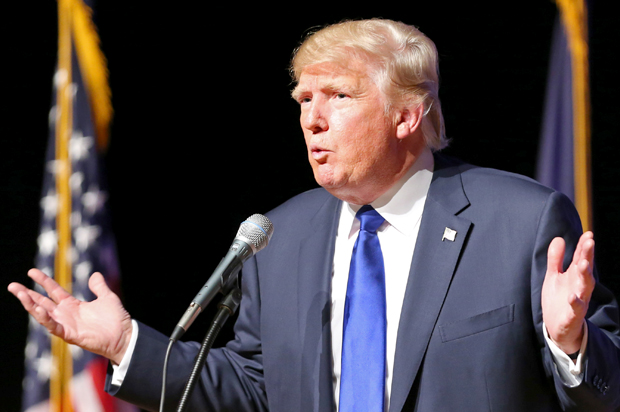As the movement to reform the U.S. criminal justice system has gained ground in recent years, activists have taken great pains to emphasize its bipartisan nature. And, indeed, it’s not often that you see the Koch brothers and Van Jones on the same side of a debate; or hear D.C. insiders describe a significant reform as having better-than-even chances to pass the Republican-controlled Congress with President Obama’s approval. Grover Norquist and Sen. Bernie Sanders don’t usually see eye-to-eye.
At the same time, however, the foundation of that consensus has always been weaker than some activists want to admit. True, many conservative elites agree on the basic need for reform; but there’s plenty of evidence to suggest their opinion isn’t shared by the GOP rank-and-file. And even the most optimistic activists will grant that it’s unlikely reform would have come as far as it has without an historic drop in violent crime (whose existence is unknown to most Americans).
So when Politico’s Michael Grunwald writes that Donald Trump’s fact-free warnings of rising lawlessness have “scrambled the politics of crime,” he gives the Donald a little too much credit. And he overestimates the depth of support for reform among Republicans, too. If criminal justice reform is truly “breaking apart” already, as the Washington Post has claimed, it won’t be because of Trump. It’ll be because an ultimately risky strategy doomed it from the start.
Grunwald writes that “Trump’s belligerence” has polarized the issue and inspired his fellow GOPers to appeal to “the angry id” of the Republican Party’s “white base.” It’s Trump, he says, who we should blame for Jeb Bush’s return to “tough on crime” rhetoric. It’s Trump, he says, who is “framing the issue as a with-us-or-against-us battle” between “the silent majority” and “longtime GOP opponents like the NAACP, ACLU and Obama.” (Throughout the piece, for whatever reason, Grunwald dances around race.)
There’s no question that Trump has stoked the fires of resentful white identity politics. But rather than depict Trump as a wrecking ball destroying reform’s chances, I think the Post’s Max Ehrenfreund is closer to the mark when he says that the pro-reform consensus was, politically speaking, “largely superficial, not substantive.” By ignoring violent offenders, Ehrenfreund argues, policymakers “never really confronted the compromises and political risks” of structural reform. There, too, he’s right.
Meaningfully reducing mass incarceration without affecting violent offenders was never a possibility. As Fordham Law School’s John Pfaff argued this summer, because “a majority of our prisoners have been convicted of a violent act” and because “drug inmates tend to serve relatively short sentences,” solving the problem simply by reining in the War on Drugs was always a “problematic myth.” To be fair, most reformers knew this already, but figured starting with nonviolent offenders was a good first step.
However savvy that approach may have seemed, though, it also implicitly granted that public support for reform was tenuous. Think about it this way: Even when activists overwhelmingly focused on mass incarceration’s most sympathetic victims, getting reform through Congress was a heavy, heavy lift. Regardless of how high the number of incarcerated Americans soared; and regardless of how low levels of violent crime had dropped. In the best possible conditions, then, failure was very much an option.
Once Republicans started attacking the Black Lives Matter movement and talking about a “Ferguson effect,” those near-perfect conditions were finished. When it came to real evidence, Republicans warning of rising crime or a “war on cops” had no leg to stand on. But that hardly mattered, because whether the messenger was Gov. Scott Walker or Donald Trump, the result was the same. “Tough-on-crime” rhetoric regained its purchase; GOP voters understood criminal justice policy through the prism of race.
As is so often the case in American politics, it’s the legacy of white supremacy that is ultimately the problem. GOP voters may have been open to reform in theory. But as soon as that hypothetical-and-angelic nonviolent offender became an actual-and-imperfect human being, their patience for reform dissipated. Gone was the talk of rehabilitation. It was back to “good guys” and “bad guys” instead. And Trump is hardly the first conservative politician to insinuate that, usually, the “bad guy” is black.
In a recent interview with Vox, the Atlantic’s Ta-Nehisi Coates noted that many Americans “think of crime as a choice people make,” privileging an individualist view of the world over one that looks to larger, more abstract forces. When Grunwald lays reform’s struggles at Trump’s feet, I think he’s making a similar mistake. If the Donald’s candidacy really does kill reform, it won’t be because of the Donald. It’ll be because the movement’s foundation was so weak, it was basically already dead.


